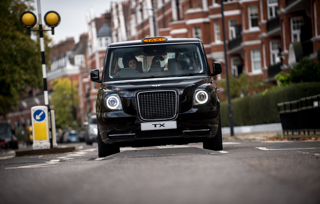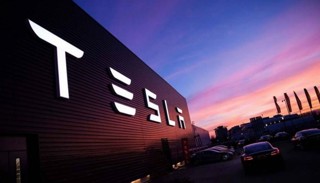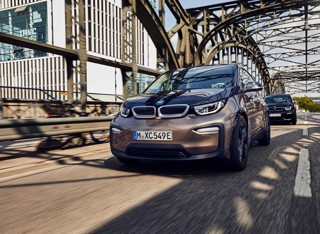Electric vehicle (EV) enquiries soared by 500% after this week’s UK Government announcement that it plans to ban the sale of cars and vans powered wholly by petrol or diesel engines in 2030.
As Prime Minister Boris Johnson set the sector on the path to an all-out ban to include hybrids from 2035 car buyers headed online to see what their immediate alternative fuel vehicle (AFV) buying options might be today, according to data from BuyaCar.
The online car sales portal said that EV enquiries would normally represent around 300 searches per day, from a stock of more than 60,000 cars, but this week’s announcement saw that figure shoot up to 1,679 in the 24 hours following the Prime Minister’s announcement.
Christofer Lloyd, editor of BuyaCar, said: "It seems that the government’s announcement has really sparked renewed interest in electric vehicles, surging on our site by a magnitude of 500% literally overnight.
“It will be interesting to see if that appetite for electric cars is maintained, when the story dies down. Meanwhile, the government has clearly realised that encouraging mass adoption of cars with zero emissions at the tailpipe, calls for drastic measures and our own experience of the sustained demand for diesels confirms it.”
BuyaCar said that EVs “still have a hill to climb” in the face of sustained demand for petrol cars in the used car sector, adding that used diesels also remain a popular choice.
As new diesel sales slumped this year by 55% compared with 2019, used diesels were still chosen by more than one-in-three BuyaCar visitors.
Last year diesels represented 38.1% of all cars sold on BuyaCar, with that figure falling in 2020 to 35.8%, but diesel car searches have fallen by just 2.3% over the same period.
In contrast, used electric vehicles represent less than 1% of sales on BuyaCar.co.uk in 2020 and a 5.5% share of new car sales so far in 2020, according to data published by the Society of Motor Manufacturers and Traders (SMMT).
Lloyd said: “Despite several years of negative publicity and increasingly tough regulatory measures designed to curb diesel use, the so-called oil burner remains a practical choice for around one in three drivers - due to their greater fuel economy than petrol equivalents and prices that are typically much lower than for equivalent electric models.
"This year diesels have never dipped below 31% of sales and reached a high point of 40% in June. This month we are tracking diesels at 37% of sales on BuyaCar, which is slightly higher than the average for 2020 as a whole.
"The reaction of motorists to the government's announcement that new internal combustion engines will no longer be permitted after 2030 was widely expected around the industry, but the news story itself clearly caused a spike in enquiries for electric vehicles through our site.
“However, there is clearly a long road ahead for the government to ensure sufficient - and affordable - electric new cars, especially given that the overwhelming majority of motorists still aim for petrol or diesel. Now, with searches for electric cars suddenly breaking through the 10% mark in the wake of news that all new car drivers will have to have one in 10 years, it will be interesting to see if this translates into increased sales.”
Early last week AM reported on data published by CarGurus which suggested that growing interest in EVs could be an indicator that motorists were already gearing up for Government’s anticipated announcement of a 2030 ban on new petrol and diesel car sales.
Ahead the Prime Minister’s speech CarGurus said that 75% of EV enquiries seen on its platform over the last 12 months occurred between July and September of this year.
It said that the rise in interest in EVs suggested that “British motorists may well be ready for wider electrification after all, well ahead of an anticipated ban”.


















Login to comment
Comments
No comments have been made yet.